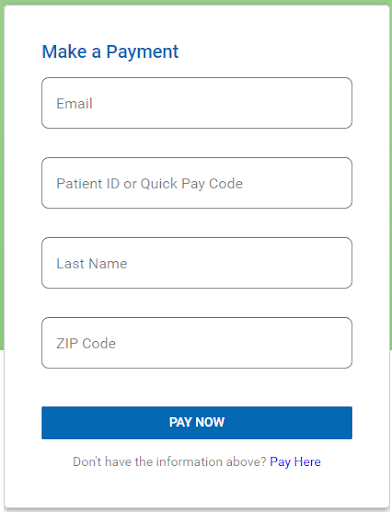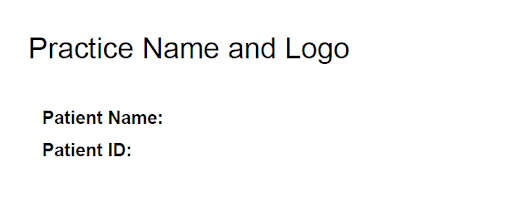Dry Eye: Symptoms, Causes & Treatment
Dry Eyes: Overview
Tears are essential for eye health. When your eyes don’t produce enough tears or your tears evaporate too quickly, you may experience irritation, blurred vision, or burning. This condition is known as dry eye disease or dry eye and affects millions of Americans. Fortunately, effective dry eye treatments can relieve discomfort and restore clarity.
Dry eye has numerous causes and affects each patient differently. Some patients have chronic dry eye, leading to long stretches of discomfort with little relief. Other patients’ symptoms arise situationally and at shorter intervals.
Over 15 million people in the U.S. are estimated to have some form of dry eye. Without dry eye treatment, patients may experience pain while running, biking, or looking at screens. Professional care and lifestyle changes can alleviate these symptoms.
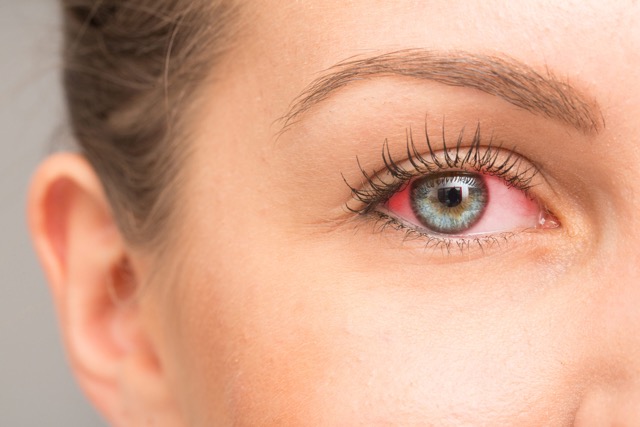
What Is Dry Eye?
Dry eye is a condition where your eyes can’t maintain a healthy layer of tears, resulting in irritation, inflammation, and vision problems. Your eye is protected by three layers of tears—oil, water, and mucus— collectively called the tear film. Healthy tear film helps you see comfortably by preventing burning, itching, and blurry vision. When the tear film is weakened, your eye lowers its defenses and is exposed to the elements.
Eye doctors refer to dry eye as a multifactorial disease, meaning it can have a long list of risk factors. Thankfully, this long list of risk factors is matched by a long list of dry eye treatment options. Chronic dry eye can be alleviated by a skilled ophthalmologist, who can identify the root causes of your discomfort.
Not every case of dry eye is the same. Patients have unique risk factors, symptoms, and treatment options that differentiate them from others. In fact, there are three notable forms of dry eye. Let’s take a look at how they differ from each other:
Types of Dry Eye
Aqueous deficient dry eye:
This form of dry eye results from a lack of aqueous tears, which are produced by your eye’s lacrimal gland. Aqueous tears make up the middle layer of your tear film—when these tears are low in number, your film is weakened, and your eye is subject to increased irritation. Your lacrimal gland may struggle to produce aqueous tears because of inflammation.
Evaporative dry eye:
This form of dry eye affects the outer layer of your tear film. This layer is oily and designed to protect the middle, watery layer of your film. When the outer layer tears evaporate too quickly, the watery layer dries up, causing irritation and discomfort.
Mixed dry eye:
If you have mixed dry eye, then you experience symptoms of both aqueous deficient dry eye and evaporative dry eye. This means your tears are lower in number and quality. Mixed dry eye can come with especially disruptive pain.
8 Common Symptoms of Dry Eye
Chronic dry eye has an array of symptoms. Some are hardly noticeable, some are annoying, and some are outright painful. Common difficulties include:
- Consistent or on/off burning
- Itchiness and Scratchiness
- Redness across your eyes
- Increased sensitivity to light
- Wearing contact lenses becomes painful
- Eyes are constantly watering
- Difficulty driving at night
- Blurry vision
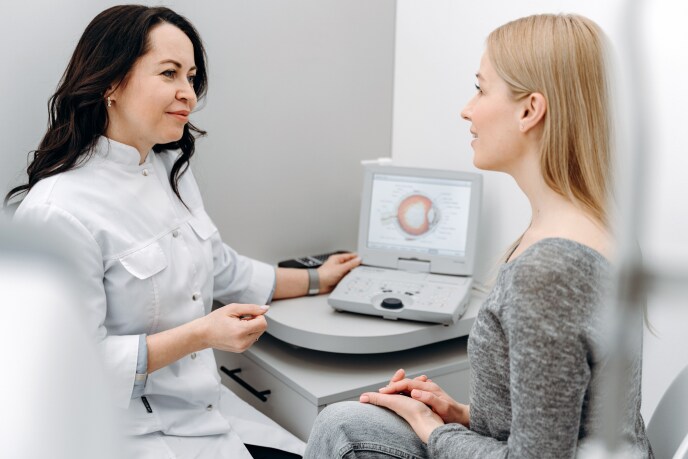
What Causes Dry Eye?
If you struggle to produce enough tears, produce unstable tears, or have both of these issues, you have likely developed dry eye. Dry eye affects some populations more than others, and there are several lifestyle choices that lower tear production and stability. Notable risk factors include:
- Age: People over 50 are more likely to develop dry eye.
- Sex: Females develop dry eye more commonly than males.
- Contact Lens Usage: If you regularly use contact lenses, your eyes may dry out quicker than non-users.
- Autoimmune Diseases: Patients with conditions such as lupus are more susceptible to dry eye.
- Environmental Factors: Cold weather, dry weather, and indoor heating sometimes lead to an uptick in dry eye cases. Allergens can also cause extra eye irritation.
- Lifestyle Choices: Smoking and high screen usage have been linked to greater dry eye risk.
How Dry Eye Is Diagnosed
An eye doctor can determine whether you have dry eye by examining your medical history and giving you a comprehensive eye exam. Eye exams are essential for diagnosing all sorts of eye diseases, not just chronic dry eye—it is recommended that high-risk patients receive an exam yearly.
Comprehensive eye exams are general and wide-reaching. If a comprehensive eye exam does not give enough information, or if your eyes require more specific testing, an ophthalmologist may use one of the following tests to diagnose dry eye:
- Schirmer Tear Test:
This test examines your tear production. An eye doctor will place a slip of paper on the corner of your eyelid and leave it there, observing how many tears your eye produces in response.
- Tear Breakup Time Test:
This test is used to observe your tear film’s stability. An eye doctor will look at your eye under a microscope and note the time between a blink and a dry spot appearing on your eye. Times of less than 10 seconds are generally of concern.
- Slit Lamp Exam:
During this exam, your eye doctor will shine a light into your eye and observe how many tears it produces.
- Antibody Tests:
Antibody tests may be used to find the cause of your dry eye. These tests reveal underlying conditions and other risk factors.
Effective Dry Eye Treatment Options
You and your ophthalmologist can work together to find the right dry eye treatment for your needs. Dry eye syndrome treatment can vary based on symptoms, underlying conditions, and risk factors. In many cases, patients simply need eye drops, but more severe instances might require surgery. Let’s look at some common dry eye treatments:
1. Artificial Tears & Eye Ointments
Artificial tears are temporary lubricants that soothe irritated eyes. They are typically available at drug stores, but you should consult an eye doctor before use. Ointments are thicker lubricants commonly used during sleep.
2. Prescription Anti-Inflammatory Drops
Eye drops are produced at varying strengths. Mild cases of dry eye can be treated with over-the-counter drops, but severe cases will need prescription eye drops like Restasis® or Xiidra®.
3. Tear-Stimulating Medications
These medications are produced in pill, drop, and gel forms. The right tear-stimulating medication will help consistently lubricate your eyes.
4. Tear Duct Procedures
Surgeries are rare but sometimes necessary for dry eye syndrome treatment. If your lower eyelids are too loose and cannot retain tears as a result, surgery may be recommended.
5. Thermal Pulse & Intense Pulsed Light (IPL) Therapy
These procedures address blocked or dysfunctional tear glands with warm massages and pulses of light. After these procedures are complete, your tear film’s oily layer should be much stronger than before.
Preventing Dry Eye
Dry eye has several causes, so you can’t control every single risk factor. But it’s important to take preventative measures whenever possible. You can start with the following:
- Scheduling Regular Eye Exams: It is recommended that at-risk patients receive an annual eye exam. These exams can catch conditions like dry eye in their early stages, often giving you more treatment options.
- Managing Chronic Conditions: Underlying conditions like diabetes have been linked to the development of dry eye. You can reduce your chances of developing dry eye by managing blood sugar levels and other risk factors.
- Environmental and Lifestyle Adjustments: Smoking, heavy screen usage, and dry air are all risk factors for developing dry eye. Eliminating or reducing these factors can benefit your eye health in the long run.

Why Choose Midwest Vision Partners for Dry Eye Treatment
Midwest Vision Partners has unparalleled expertise in addressing chronic dry eye across the Midwest. Our practices are devoted to your comfort and recovery, developing cutting-edge treatments to make sure you receive attentive, quality care at a fair price.
Our model is centered around you. By combining advanced diagnostic tools and customized treatment plans, we place world-class care right in your neck of the woods. You shouldn’t have to travel far and wide for a comfortable solution, and now you don’t have to.
MVP’s 70+ locations deliver brighter futures for our patients. When you choose us, you choose customer-first care that changes lives for the better. Chronic dry eye doesn’t have to alter your daily routine forever—contact MVP today to learn how we can work together and create a clearer path forward.
Frequently Asked Questions
Unfortunately, dry eye is a chronic condition that cannot be cured. But treatments like eye drops can help you manage symptoms. Without ample treatment, dry eye can affect your daily routine, making regular tasks difficult.
The improvement window for dry eye treatment varies. Some treatments, such as eye drops, will bring immediate relief, but lifestyle changes and surgical procedures may take time to show proper results.
Most dry eye procedures are relatively low-risk, especially non-surgical procedures. However, other eye procedures may be affected by dry eye. For example, if you have dry eye, LASIK surgery may be unsafe.
Related Services
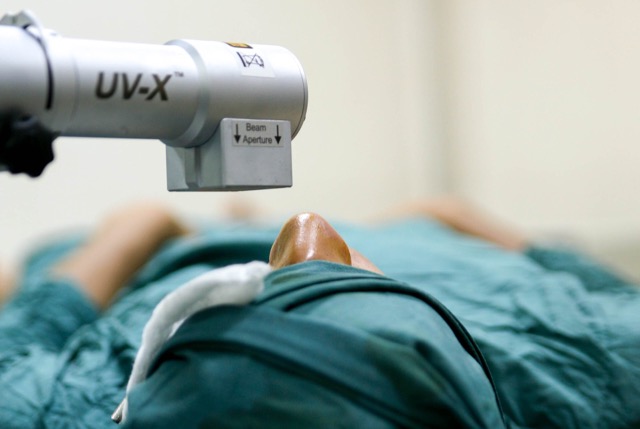
An effective treatment for keratoconus that stabilizes your cornea and helps prevent further vision loss.

Injured, swollen, or scarred corneas can interfere with vision. Cornea transplants remove and replace the damaged cornea with a donor one.
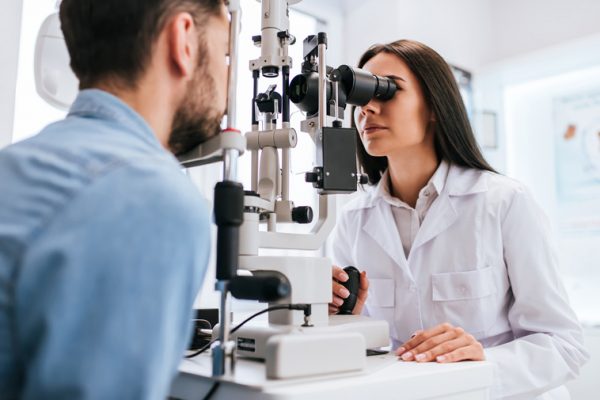
Stay proactive about your eye health—it’s the best way to preserve clear vision or correct issues.
Let's Get Started
When It Comes To Eye Health, We’re Your MVP




